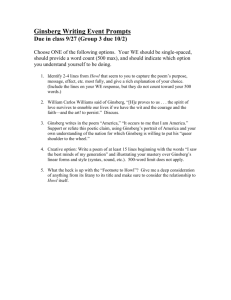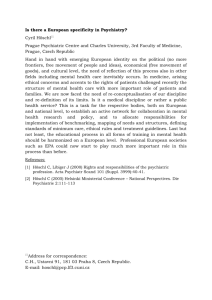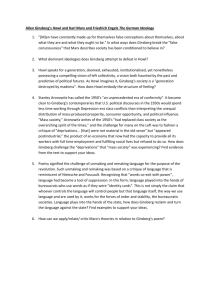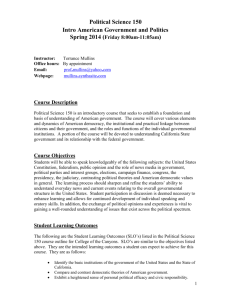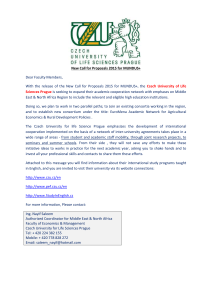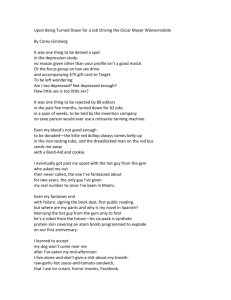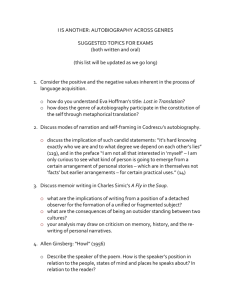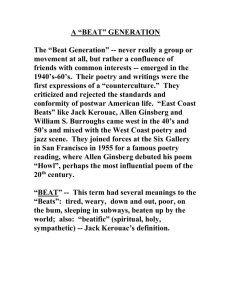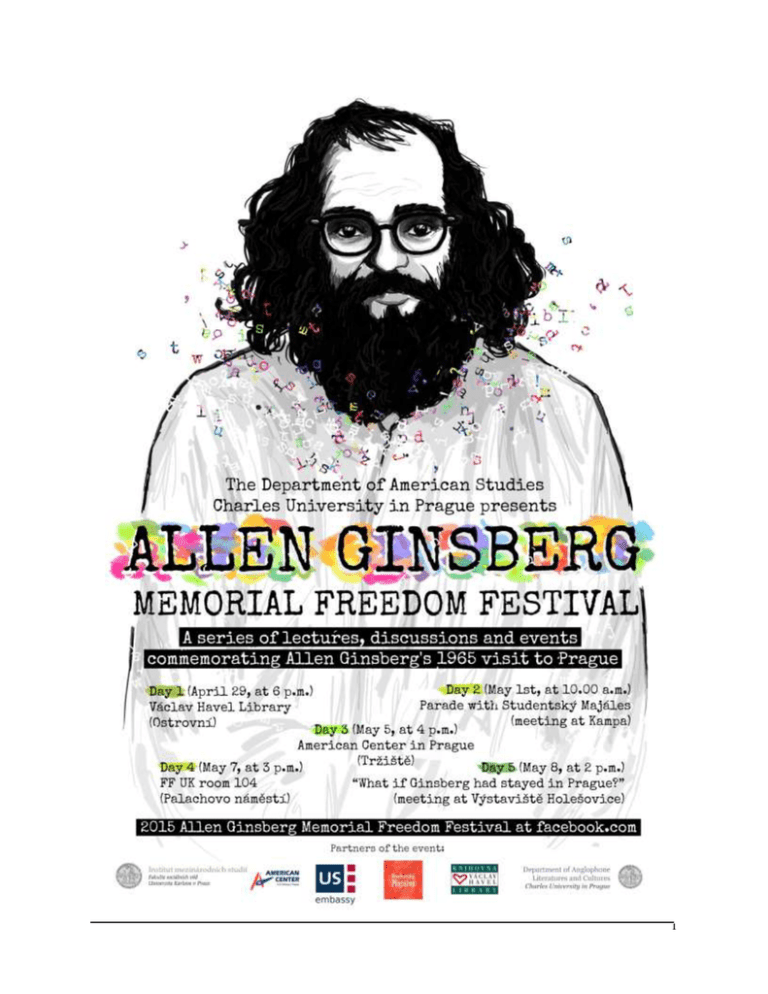
1
The Allen Ginsberg Memorial Freedom Festival
“And I am the King of May…”
Allen Ginsberg, “Kral Majales (King of May)”, 1965
Welcome from the Festival’s Originator
When I first heard of Allen Ginsberg’s whirlwind 1965 visit to Prague, I got excited. As
someone who grew up in Hungary during that country’s transition from Communism to
democracy, I had heard of Ginsberg’s exploits and saw him as a guru of protest art. For this
Budapest boy, Ginsberg was the quintessential rebel – with a veritable compendium of
confrontations with authority. Back in 1957, Ginsberg’s poem “Howl” triggered one of the most
famous trials in the United States about the use of obscenity as freedom of expression in
literature. Ginsberg visited Cuba and Czechoslovakia in 1965, and was ejected from both
countries by their self-professedly progressive Communist régimes for his alternative sexual
politics. In 1968, you could find Ginsberg chanting his mantras in the middle of the anti-Vietnam
protest outside the Democratic National Convention in Chicago just as Mayor Daley’s police
force was brutally breaking up the demonstration. During his tour of Nonaligned and Communist
countries in the 1980s, Ginsberg made an LP recording of his poetry with the Hungarian Hobo
Blues Band - themselves barely tolerated be the censors - released in 1987. It seemed to me that
Ginsberg had gone everywhere, pushed the limits and was thrown out of every country - but he
had the last laugh by outliving several oppressive régimes and seeing them turn into dust.
Obviously, the visit to Prague of this out gay Beat poet-turned Leftist liberation activist artiste
was more complex – but this is what makes it so exciting. As an icon and a historical actor, Allen
Ginsberg’s figure brings together in a remarkable way the Beat Movement of US literature, the
Free Speech movement on US university campuses, the struggle against the Vietnam War, the
Counterculture, and Gay Liberation-turned LGBT and anti-HIV/AIDS activism. What makes
Ginsberg’s zigzagging in the world of the Cold War especially interesting is that his activities
connected US forms of dissent with those grown in other regions: Central American and Asian
Marxism and other leftist ideologies, European intellectualism, alternative arts, student activism,
and the anti-Communist underground are only the most obvious ones. It is rather easy to cast
Allen Ginsberg as a traveling instigator or agent provocateur, leaving in his wake ideas and
experiences that in a few short years would percolate into the Prague Spring or the Global May
of 1968.
2
What makes Ginsberg’s 1965 visit to Prague the worthy topic of a memorial festival is that it
allows us to explore these forms of dissent, their potential and their limits, their transferability
and their connections across the Atlantic. In this, we would be learning, thinking about and
discussing some of the traditions that make for a healthy democracy; the ways in which such
traditions have been connected globally; and – even more important for the here and now – how
we ourselves can and should build coalitions for our dissenting causes across class, race,
gender/sexual orientation, and across countries, continents and oceans.
Ginsberg was an example of someone who refused to adhere to the official categories and state
directives of the Cold War – he kept traveling, transgressing norms and boundaries, exploring
and offering alternatives, on the peripheries and in the centers of geopolitical blocs and empires.
His is just one model for us to consider as we are experiencing the emergence of new and
powerful divisions in our world. To be subverting and resisting authority at every turn, to be
opening alternative possibilities, and to be having fun doing it – this is the legacy of Allen
Ginsberg.
With thanks to the Department of American Studies at Charles University in Prague for their
openness and hard work, from a nostalgic former colleague Gyorgy Toth, PhD
Lecturer, University of Stirling, Scotland
3
SCHEDULE
Day 1: Wednesday, April 29
Václav Havel Library (Ostrovní 13)
18.00
Public talk by Ralph Young: “Dissent: The History of an American Idea”
Award-winning Temple University professor Ralph Young presents his latest book, Dissent: The
History of An American Idea. Dr. Young will talk about how dissent is central to American
history; that Americans, taking seriously the First Amendment right to dissent, have persistently,
in every decade of the nation’s history, pushed the U.S. to live up to the promises it made in its
founding documents that “all men are created equal.”
What are the traditions of dissent in your country? Which American forms of dissent have
influenced your ideas about activism? Do you think forms of dissent can ‘travel’ and be effective
outside of their original contexts?
Ralph Young, Ph.D. (Michigan State University) is Professor of History at Temple University,
Philadelphia. He has won several teaching awards and is the author of Dissent in America: The
Voices That Shaped a Nation (Pearson/Longman, 2006), a collection of four hundred years of
dissenting speeches, petitions, letters, songs, poems, and essays that called for change, reform, or
even revolution. He is also the founder of weekly campus-wide teach-ins at Temple, in which
students and faculty examine the historical context of controversial contemporary issues. His
most recent book, Dissent: The History of an American Idea (NYU Press) was published on 24
April
2015.
4
Day 2: Friday, May 1st
Sovovy Mlýny, Kampa – Karlovo náměstí
10.00
Parade with Studentský Majáles
The 1st of May celebrations will be launched by an amazing allegorical parade, which will start
at Sovovy Mlýny at Kampa at 10:30. The parade will pass by significant places reminding us of
the 50th anniversary of the legendary Majáles of 1965, whose king was the American poet Allen
Ginsberg.
Do you think that traditions can help us understand the past and find guidance for the problems
of the present? How can a re-enactment of the Majáles take us closer to understanding the youth
and struggles of our grand/parents’generation, and their message for us?
As university tradition dictates, the main program will start at 1:00 pm and will be held in the
picturesque historical courtyard of the Karolinum, but also in the Student’s club Celetná, and this
year for the first time also at the Fruit Market (Ovocný trh) itself. Our beautiful historical Prague
will thereby become - at least for a day - the center of student celebrations.
5
Day 3: Tuesday, May 5
American Center in Prague (Tržiště 13)
16.00
Public talk by Josef Jařab: “Remembrance of Allen Ginsberg”
Dr. Jařab will be sharing with the audience his recollections of meetings with Allen Ginsberg
over more than three decades, in the United States and in the Czech Republic. He will recount
details about interview sessions, joint poetry readings, and collaboration in classes. Dr. Jařab will
give us a full portrait of Ginsberg as an inspiring teacher, a leader of the Beat Movement, a
prominent representative of modern US poetry, conscientious citizen of the world, and a good
man.
Of the many things that Ginsberg did, what do you think is the most important for our memory of
him? What is the most important for our current struggles?
Prof. PhDr. Josef Jařab, CSc. is a Czech literary historian, translator and Anglicist expert. In
1989 he was a visiting professor at Harvard University. Between 1990 and 1997, he was the
rector of the Palacký University in Olomouc. He is the author and editor of several books,
including American Poetry and Poets of Four Centuries (3rd ed. 1989), and the anthologies of
American poetry Dítě na skleníku and Masky a tváře černé Ameriky (Afro-American literature).
He has written a great many essays, articles, book prefaces and afterwords in the field of
American literature and American Studies. He was also one of the chief contributors to the
Czech dictionary of US writers.
16.30
Introduction of the film The Normal Heart (2014) by Carlton Round
16.45
Screening of the film The Normal Heart (2014)
Written by Larry Kramer and directed by Ryan Murphy, The Normal Heart is a critically
acclaimed drama film starring Mark Ruffalo, Matt Bomer and Taylor Kitsch. The film deals with
the rise of the HIV-AIDS crisis within the gay subculture of New York City between 1981 and
1984, as seen through the eyes of Ned Weeks, an openly gay writer and activist.
The movie will be introduced by Carlton Rounds.
6
19.15
Discussion between Carlton Rounds and anti-HIV-AIDS activists from Central Europe:
“Fighting against HIV-AIDS by Communicating and Building Trust across Cultures and
Sexualities.”
In the 1980s the leaders of the gay rights movement waged not one but two simultaneous battles:
one for political recognition, and another in an attempt to survive HIV/AIDS itself. How did a
highly stigmatized group find the strength to fight as their bodies were failing them? What value
can be found for other groups or individuals in the historic narrative of AIDS? Utilizing the film
The Normal Heart, based on a play by renowned activist Larry Kramer, we will seek to
understand how history and equal rights have been informed by the response to the HIV crisis.
20.30
A studio Rubín (Malostranské náměstí 9)
Musical storytelling by Carlton Rounds: “The LGBT Performance Tradition in U.S.
Culture”
7
Carlton Rounds is Founder and Executive Director for Volunteer Positive, the first organization
that supports people infected with or affected by HIV to participate in international volunteer
service. In 2011, Carlton and his non-governmental organization Volunteer Positive were listed
in the year’s top 100 most innovative people by POZ Magazine. Carlton is currently Director of
Educational Partnerships at Cross-Cultural Solutions, the leading volunteer service NGO in
North America. Previously he served as Associate Dean and Associate Professor at Manipal
International University in Kuala Lumpur, Malaysia. In addition, he was the Assistant Director
with the Center for International Programs in the State University of New York system, where he
managed over 45 international programs and served in a statewide initiative to use technology to
enhance curricular internationalization. In 2011, he was recognized with a national award from
Diversity.com for his work with underrepresented students in international education. At
Simon’s Rock Early College, Reed College, and School for International Training alumnus,
Carlton is an HIV and human rights activist, a vocal performance artist, and an international
educator. He has worked with the Soros Foundation’s scholarship division traveling to
Uzbekistan, Azerbaijan, and Georgia. While serving as the Associate Director for the Institute of
International Liberal Education at Bard College (IILE), he managed study abroad programs to
Central European University in Budapest, Smolny College in Russia, and The International
Human Rights Exchange in South Africa. He also directed the Program for International
Education (PIE).
8
Day 4: Thursday, May 7
Faculty of Arts, Charles University in Prague (nám. Jana Palacha 2)
15.00
Public talk by Andrew Giarelli: “Leaving Them Still Wondering What You Were Doing
When You Got Outta Town: Ginsberg, Prague, and the Birth of the Counterculture”
Allen Ginsberg, that master of self-promotion timed to shifts in the cultural zeitgeist, could not
have picked a better moment for his May 1965 Prague activities to both reflect and galvanize
change. Though popular media now regards 1967 as the counterculture’s U.S. and European
birth, in fact its seminal moments date to 1965, forming a constellation of developments around
which Ginsberg built his parodic, subversive appearance. That same spring, Ken Kesey and his
northern California circle of LSD-taking disciples were formulating the first “Acid Tests” that
would mystify and enrage people later in the fall. Less visibly but perhaps even more critically,
Nevada’s “Red Dog Saloon” gang were fooling locals into joining the first psychedelic rock
concerts starting in June. In Europe, the Dutch Provos were stunning Amsterdam with their first
“happenings”, while the Viennese Actionists were moving from merely shocking shows to
public “actions”. All these moments — including the first stirrings of what would become the
Prague Spring — were fuelled by equivalent seismic shifts in popular music, epitomized by Bob
Dylan’s controversial move to electric rock, and John Lennon’s first veiled references to
psychedelic drugs. All were mostly misunderstood and scorned by the larger culture, allowing
their proponents to adopt what I have call an “ethos of the put-on”, epitomized by Král Majáles
Ginsberg’s formal bow to Prague’s masses on that day in May 1965.
Do you think that provocative and experimental art conveys some kind of zeitgeist, a general
feeling of what our historical period means? Which artists have done this in your country? What
makes these artists so good at capturing and expressing our zeitgeist?
Andrew Giarelli, Ph.D. works as an external lecturer at the Department of North American
Studies, Charles University, and has been a long-term lecturer at the Schools of Humanities and
Journalism, Anglo-American University.
9
15.45
Public talk by Josef Rauvolf: “What Really Happened When Ginsberg Came to Prague in
1965”
Mr. Rauvolf will share with his audience details about Allen Ginsberg’s 1965 visit to
Czechoslovakia and his coronation as King of May. Following the celebrations, Ginsberg spent
several days in the company of local students and rock ‘n’ roll musicians, enjoying the brief
breeze of freedom that would later culminate in the Prague Spring. Shortly afterwards, however,
state police arrested and harassed Ginsberg, labeling him a provocateur for his open
homosexuality. Deemed subversive by the régime, Ginsberg was escorted to his hotel, forbidden
to make any calls, and eventually put on a plane for London. This act of state aggression made
the impact of the poet’s visit even more meaningful for those struggling against totalitarian rule.
Why did Ginsberg’s open homosexuality make the poet a threat to the Communist régimes? Why
could the Communist political system not tolerate the presence and activities of a man who wrote
poems and loved men? What is the larger relationship between politics and sexuality?
Josef Rauvolf is a Czech translator and publicist. His translations include William S. Burroughs’
Naked Lunch as well as works by Jack Kerouac and Charles Bukowski. Mr. Rauvolf has long
been considered an eminent expert on the Beat generation in the Czech Republic.
10
16.40
Public talk by Justin Quinn: “Ginsberg After Prague, in Nicaragua and Further Afield.”
One of the most famous cultural episodes of the Cold War occurred in Prague when Allen
Ginsberg was elected Král Majáles and wrote a poem of that name. His influence on Czech
literature has been mapped in part by Petr Kopecký and Josef Rauvolf. In this talk, I will follow
Ginsberg as he leaves Prague on a plane in 1965 and then continues his travels through Cold War
zones such as Wichita and Nicaragua, asking how his Czech experience inflected his
understanding and representation of global politics in this period. While he forged many
important friendships in Prague (among others, Jan Zábrana, Josef Škvorecký), ultimately, after
his experiences in Latin America he came to condemn the anticommunism of these people,
explicitly naming Škvorecký in the poem "You Don't Know". Czech literary historiography
tends to limit discussions of Ginsberg to his influence on the Underground (always omitting his
more profound impact on Miroslav Holub, the most influential Czech poet of the 20th century
outside Czechoslovakia), conceiving literary space almost exclusively in anticommunist terms. A
more nuanced approach can help us see other political possibilities for Czech literature
(especially those coming to the fore in the youngest generation of Czech writers), but also for
Anglophone poetry, allowing it to maintain ideological commitments without collapsing into a
predictable Cold War binary.
Do you think that art can be independent from political ideologies? When you read literature, do
you want to know the author’s ideological/political position? Do you choose what to read based
on the politics of the author?
Justin Quinn was born in Dublin, and educated there at Trinity College (BA & PhD). His
translations of the Czech poet Petr Borkovec, From the Interior, appeared in 2008 from Seren.
He works at the Department of English, Pedagogical Faculty of the University of West Bohemia.
Currently he is translating the poetry of Bohuslav Reynek. A monograph entitled Between Two
Fires: Transnationalism and Cold War Poetry will be published by Oxford University Press in
September 2015.
11
17.30
Public talk by Gyorgy Toth: ““Howl”, Allen Ginsberg’s Obscenity Trial, and Why They
Still Matter Today.”
Before going abroad, Allen Ginsberg and the Beats challenged the American laws of censorship
– and they won! Lecturer in post-1945 US History Dr. Gyorgy Toth will discuss how in 1956-7
Ginsberg’s poem “Howl” became a test case for what writing counts as “obscenity”, literary art,
or social criticism. While Hungarians were put on trial for demanding political rights under
Communism, Ginsberg’s publisher and lawyers were arguing for freedom of expression and
dissent in the courts of San Francisco, California.
What forms of censorship do you face in your society? How do you respond to attempts to censor
your expression, art, or behavior?
The film Howl (2010) by Rob Epstein and Jeffrey Friedman, which explores the birth of Allen
Ginsberg’s most notorious work and the obscenity trial that the famous poem prompted, will be
used as an illustration of the themes of Dr. Toth’s presentation.
If you were given the resources to re-create Ginsberg’s poem “Howl” in any media, what
medium and style would you choose? How would you make the poem relevant to the issues and
struggles of today?
Gyorgy Toth, Ph.D. (University of Iowa, USA), is former assistant professor at the Department
of American Studies at Charles University in Prague, and is currently serving as Lecturer in post1945 US History and Transatlantic Relations in the Division of History and Politics at University
of Stirling, Scotland, U.K.
12
Day 5: Friday, May 8
Výstaviště Holešovice, continued at Café Jedna, Veletržní Palác
14.00
Prague Spring 2.0 at Výstaviště Holešovice
Prague Spring 2.0 will pay homage to the events of 1965 and play with the idea: what would
Ginsberg do, if he came to Prague today? Prague Spring 2.0 will be a parade celebrating
freedom and victory over mental and physical oppression.
17.00
Series of lectures, discussions, poetry reading and live music at Café Jedna, Veletržní Palác
Public discussion facilitated by Carlton Rounds: “Where Do We Go from Here? Shared
Rights Struggles, Experiences, and Future Involvement”
Fifty years after Ginsberg’s visit, what has changed? What are the dynamic intersections of
human rights movements? What are the obstacles to equality and inclusion then and now? Why
are minority rights, and their enforcement, an indicator in determining the health of a culture or
nation? What can each of us do to honor the journey to equality for all people?
Public talk by Miloš Calda: “Jazz, the Beats, and the Coming of Czech Democracy”
Music was an integral part of American counterculture. One cannot read Jack Kerouac’s On the
Road or Allen Ginsberg’s “Howl” without sensing how infused these works are with the
mesmerizing and often melancholic world of jazz and blues. As in the United States, Czech
artists and activists have also found an important realm of expression in music; one which was
made all the more precious by the constant pressure put on these individuals by the totalitarian
régime.
What is the relationship between poetry and music? Do you think that the lyrics of hiphop music
can be considered poetry? What makes words and music especially suited to each other? Would
the lyrics of your favorite song have the same meaning and feeling without music? Would the
music work the same way without the words?
Doc. PhDr. Miloš Calda is a renowned Americanist active at the Department of American
Studies, Institute of International Area Studies, Charles University in Prague. He has a rich body
of published works that cover a wide array of topics, from the mythology of the Wild West to
American political history. He has been a life-long fan of jazz music, frequently integrating his
expertise in the field into his lectures and research.
13
Public talk and performance by Ralph Young: “Finding Your Inner Beat: The Evolution of
Protest Music in America”
One of the most effective methods of spreading a dissenting message has been music. From
American revolutionaries in the eighteenth century to labor agitators in the nineteenth, from Joe
Hill, Woody Guthrie and Pete Seeger to Bob Dylan and Hip Hop artists like Immortal Technique,
there is a rich tradition of protest music in the United States. Dr. Ralph Young will give a talk
and demonstration of how songs of dissent have evolved from colonial days to the present, and
how modern day protest (and indeed popular) music had its seeds in the merging of European
and African traditions.
What are your favorite protest songs? How do they express dissent? What gives these songs their
special power? Do they retain their power if they are translated from one language or style into
another? What is the role of translators and performers in transmitting protest music from one
historical period or country to another?
14
Festival Sponsors:
Small Grants for Democracy, US Embassy to the Czech Republic, Prague
Department of American Studies, Institute of International Area Studies, Faculty of Social
Sciences, Charles University in Prague
Festival Hosts:
American Center, Prague
Department of American Studies, Institute of International Area Studies, Faculty of Social
Sciences, Charles University in Prague
Department of Anglophone Literatures & Cultures, Faculty of Arts, Charles University in Prague
Studentský Majáles 2015
Participating Institutions and Organizations:
Department of American Studies, Institute of International Area Studies, Faculty of Social
Sciences, Charles University in Prague, Czech Republic
Department of English, Pedagogical Faculty of the University of West Bohemia, Czech Republic
Department of History, Temple University, Philadelphia, Pennsylvania, USA
Division of History and Politics, School of Arts and Humanities, University of Stirling, Scotland,
United Kingdom
Schools of Humanities and Social Sciences, Anglo-American University, Prague, Czech
Republic
Volunteer Positive, USA
15
FESTIVAL ORGANIZERS
Kryštof Kozák - kozak@fsv.cuni.cz
György Tóth - gyorgy.toth@stir.ac.uk
ASSISTANTS
Vladimíra Dostálová – vladimira.dostalova@gmail.com
Tomáš Vítek - perkelt.vitek@seznam.cz
Ádám Hushegyi - adam.hushegyi@gmail.com
POSTER DESIGN AND ART
Alina Sokolova
16

